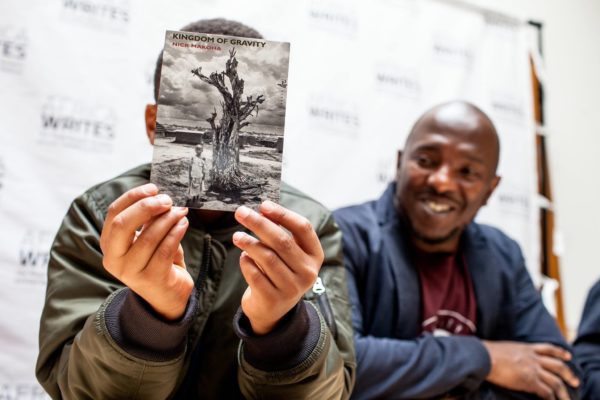
The Guardian has unveiled its Best Books of 2017. Unlike The New York Times Book Review‘s 100 Notable Books of 2017 which is selected by the newspaper’s editors, The Guardian‘s list is chosen by invited authors and is essentially those authors’ favourite books of the year.
This year, seven books by Africans are selected: Uganda’s Nick Makoha’s poetry collection Kingdom of Gravity; Nigeria’s Ayobami Adebayo’s novel Stay with Me; Zambia’s Kayo Chingonyi’s poetry collection Kumukanda; Nigeria’s Olumide Popoola’s novel When We Speak of Nothing; South Africa’s Sisonke Msimang’s memoir Always a Country; Nigeria’s Lesley Nneka Arimah’s short story collection What It Means When a Man Falls from the Sky; and Nigeria’s Akwaeke Emezi’s novel Freshwater. Nick Makoha, Kayo Chingonyi and Sisonke Msimang were shortlisted for the inuagural Brittle Paper Literary Awards—Makoha and Chingonyi for the Brittle Paper Award for Poetry, with Msimang winning the Brittle Paper Award for Essays/Think Pieces. Also, four African authors were asked to make selections: Bernadine Evaristo, Ayobami Adebayo, Taiye Selasi, and Chigozie Obioma.
The list comes in Parts One and Two.
Part One
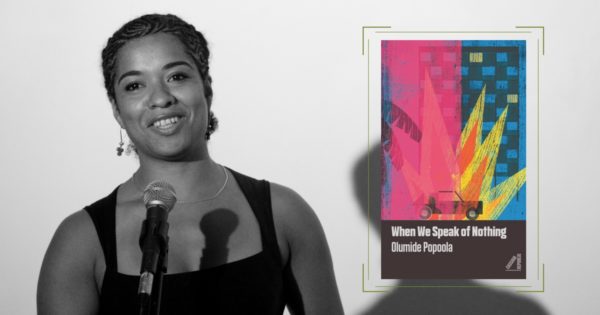
Olumide Popoola’s novel When We Speak of Nothing and Nick Makoha’s poetry collection Kingdom of Gravity are selected by Bernardine Evaristo:
When We Speak of Nothing by Olumide Popoola (Cassava Republic) is a linguistically inventive and deliciously original debut novel about a young, transgender protagonist who travels to Nigeria to find his father. Kingdom of Gravity by Nick Makoha (Peepal Tree) is an electrifying debut poetry collection that skilfully resurrects the terror of Idi Amin’s dictatorship from this British writer who fled Uganda as a child. Why I’m No Longer Talking to White People About Race by Reni Eddo-Lodge (Bloomsbury Circus). This political, accessible and uncompromising book has got people talking about race and racism in Britain.
Part Two
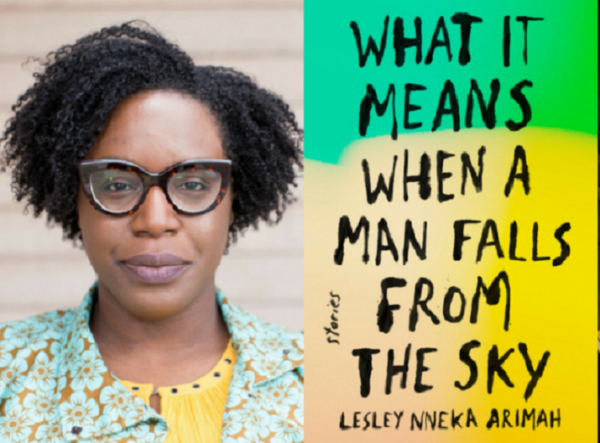
Lesley Nneka Arimah’s short story collection What It Means When a Man Falls from the Sky is selected by Ayobami Adebayo:
I’d been anticipating Lesley Nneka Arimah’s debut since I read one of her stories years ago, and with its remarkable range and exquisite prose, What It Means When a Man Falls from the Sky (Tinder Press) did not disappoint. In The Zoo (Faber), Christopher Wilson reimagines Stalin’s final days in power through the eyes of Yuri, a brain-damaged boy who becomes the dictator’s food taster. The result is a witty, tender, entertaining and sinister satire. Meena Kandasamy’s vivid, sharp and precise writing makes a triumph of When I Hit You: Or, a Portrait of the Writer as a Young Wife (Atlantic), her searing and unflinching portrait of an abusive marriage.
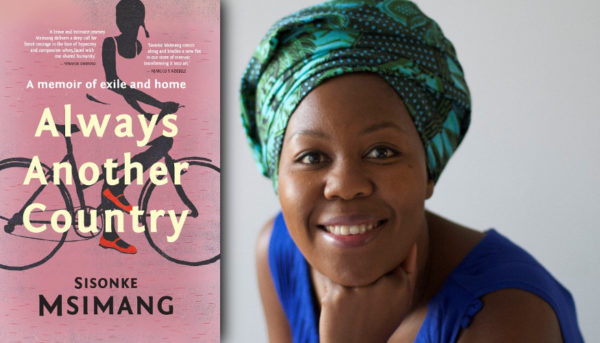
Sisonke Msimang’s memoir Always a Country and Akwaeke Emezi’s novel Freshwater are chosen by Taiye Selasi:
Chiara Barzini’s Things That Happened Before the Earthquake (Doubleday) strikes that rarest balance: a brilliant literary novel with all the effortless delights of a beach read. It’s a new-girl-in-town Bildungsroman that follows a precocious Italian teenager through 1990s Los Angeles. Sisonke Msimang’s Always Another Country (Jonathan Ball) is my favourite kind of memoir, so lyrical and dreamlike that it reads like a novel. It’s an artful meditation on exile and return, womanhood and motherhood unfolding against the backdrop of post-apartheid South African politics. Freshwater (Grove Atlantic) by Akwaeke Emezi is sheer perfection: sexy, sensual, spiritual, wise. One of the most dazzling debuts I’ve ever read. Ever since falling in love with Milan Kundera in secondary school, I’ve been obsessed with love triangles.
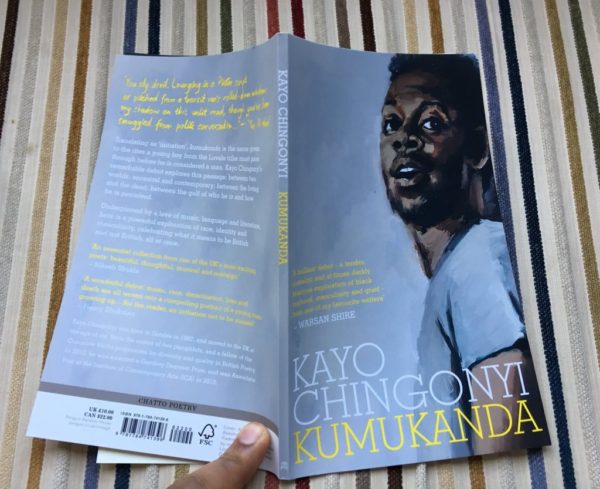
Kayo Chingonyi’s poetry collection Kumukanda is selected by Mark Haddon:
For reasons I don’t quite understand, poetry and I have been at odds with one another for a couple of years. I couldn’t bring myself to read an entire collection and I regularly gave up on poems that dared to go over the page. I simply couldn’t see the point. Then, a few weeks ago, I was sent a Red Cross parcel by Chatto & Windus which contained debut collections by three poets and they blew me away: Division Street by Helen Mort, Kumukanda by Kayo Chingonyi, and Black Country by Liz Berry. I have fallen in love with poetry again. Chatto clearly have some kind of secret hotline to my heart.
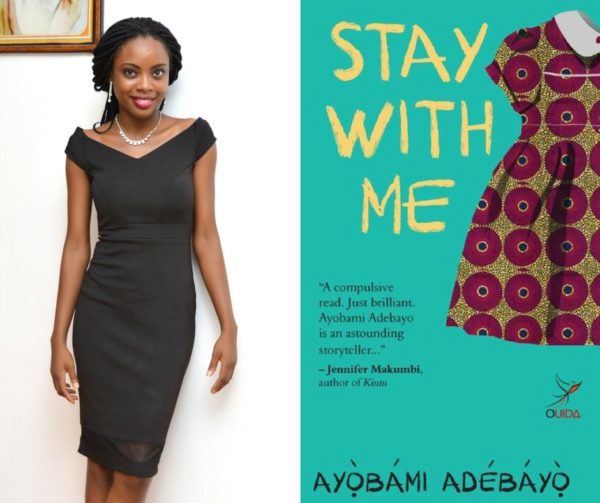
Ayobami Adebayo’s Stay with Me is chosen by Louise Doughty:
The Women’s prize-shortlisted Stay With Me (Canongate) by Ayòbámi Adébáyò had me hooked from the start with its portrait of marital disharmony in 1980s Nigeria.
Nick Makoha’s Kingdom of Gravity is again selected by Jackie Kay:
Nick Makoha’s Kingdom of Gravity(Peepal Tree Press) is a bold and brilliant poetry debut that does not avert its gaze from trauma and atrocity (exploring along the way the brutal rule of Idi Amin and the civil war) and yet is light on its feet and fills you with hope.
Chigozie Obioma went for three books by non-Africans:
I enjoyed What Language Do I Dream In? by Elena Lappin (Virago). She creates an acute sense of tension, and the way she loops explosive events in her life – discovering that her father was not, in fact, her father – into the philosophy around art and language is skilful and riveting. George Saunders’s Lincoln in the Bardo (Bloomsbury) is one of the books where the jacket description gets it right: they use the word “kaleidoscopic” to describe this ingenious, polyphonic structure that is at once as entrancing as it is beautiful. In Days Without End (Faber), Sebastian Barry employed a rich, flourishing cascade of 19th-century vocabulary to create an atmospheric novel of friendship, war, immigration and the fragilities of the human life. It’s a powerful book.
Congratulations to Sisonke Msimang, Nick Makoha, Olumide Popoola, Kayo Chingonyi, Lesley Nneka Arimah, Ayobami Adebayo and Akwaeke Emezi.


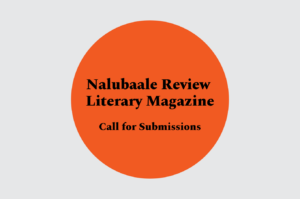

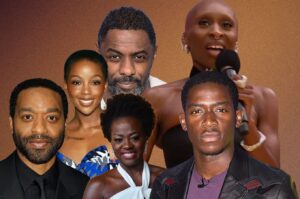




COMMENTS -
Reader Interactions